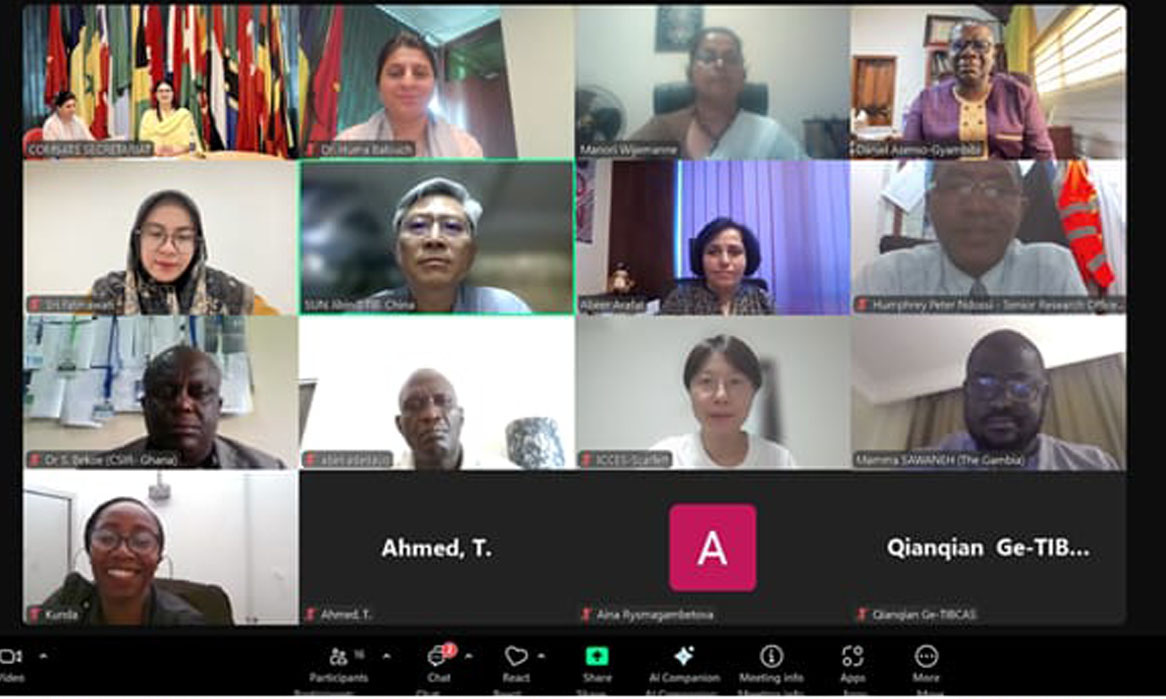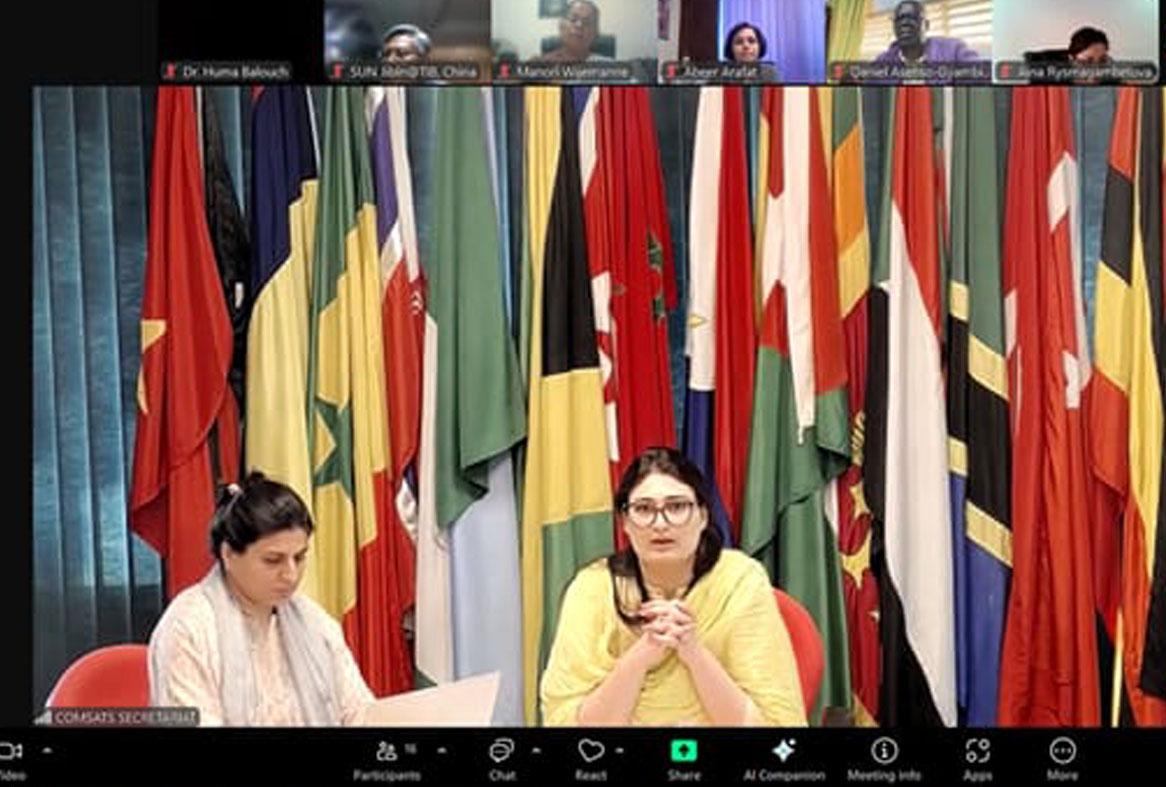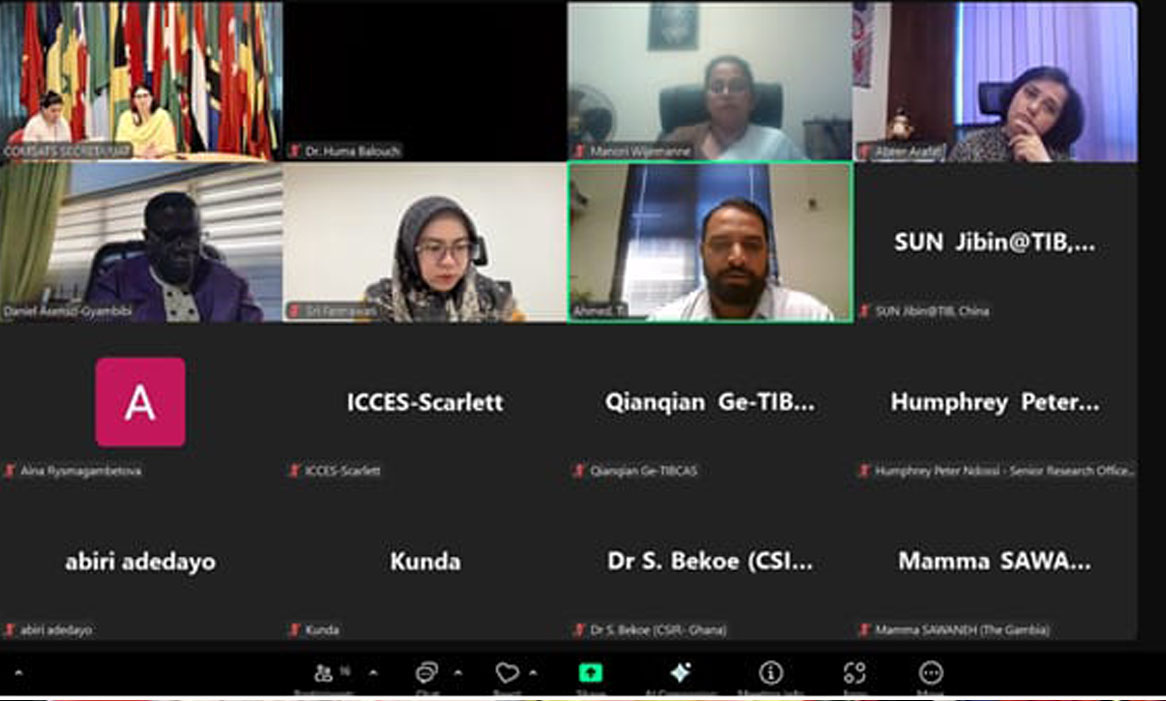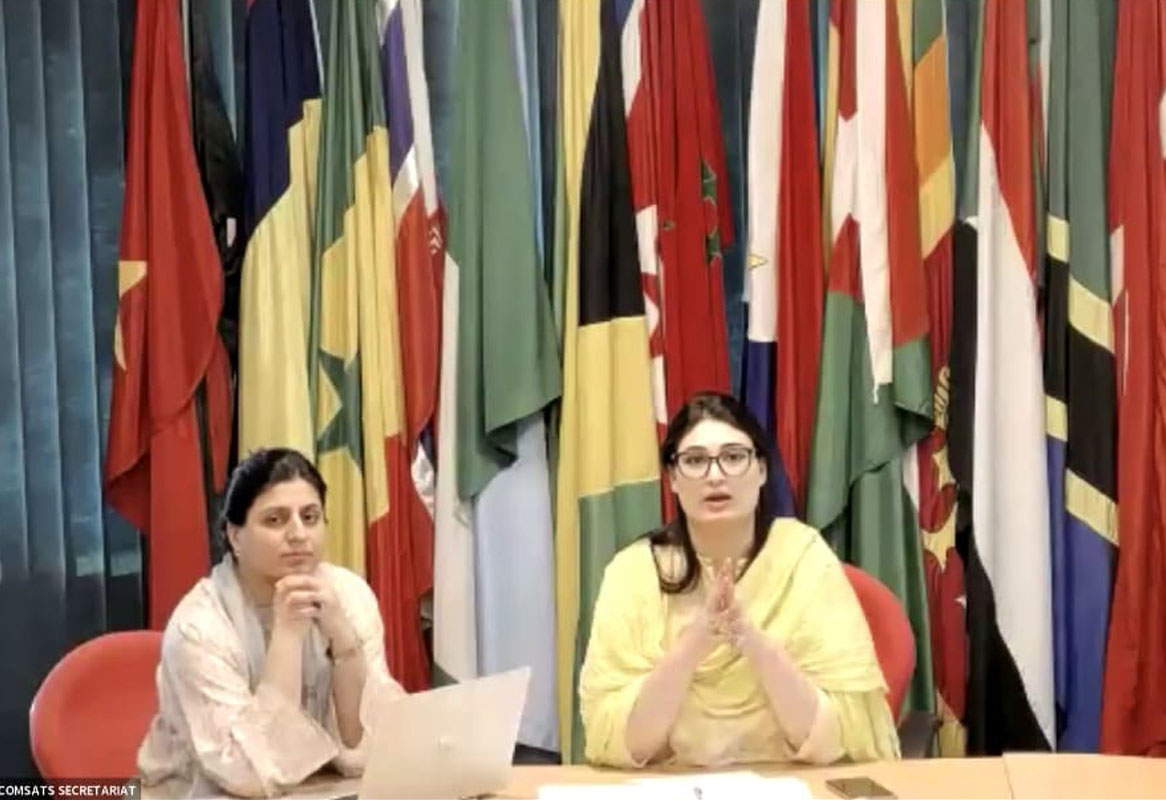As a continuation of the strategic deliberations undertaken during the 24th and 25th meetings of the COMSATS Coordinating Council—particularly those germane to the mandate of the COMSATS Centre for Climate and Sustainability (CCCS)—a virtual coordination meeting was organized on 2nd June 2025 by representatives of the CCCS Secretariat. The session was convened with the objective of assessing progress on previously endorsed resolutions and formulating actionable pathways for their implementation. Participants included focal persons and domain experts from the Member Institutions comprising the CCCS network.

The convening was marked by broad geographic and institutional representation from across COMSATS Member States. Distinguished participants included Prof. Jibin Sun (Tianjin Institute of Industrial Biotechnology, China); Dr. Daniel Asenso-Gyambibi and Dr. Stephene Bekoe (Council for Scientific and Industrial Research, Ghana); Dr. Sri Fatmawati (Institut Teknologi Sepuluh Nopember, Indonesia); Ms. Manori Wijemanne (Industrial Technology Institute, Sri Lanka); Engr. Abeer Arafat (Royal Scientific Society, Jordan); and Dr. Aiman El-Sayed (National Research Centre, Egypt), alongside representatives from the Tanzania Industrial Research and Development Organization (TIRDO), the National Mathematical Centre (Nigeria), and others.

The meeting commenced with remarks underscoring the imperative of enhanced intra-network coherence and collaborative engagement. Representing the Secretariat, Dr. Mehwish Durani, Head COMSATS Centre for Climate and Sustainability (CCCS) acknowledged CCCS’s growing international footprint—including participation in COP29 and technical exchanges with TWAS—while emphasizing the exigency of transitioning from symbolic affiliation to sustained, results-driven cooperation among the Centres of Excellence (CoEs).
The Secretariat apprised participants of ongoing collaborative frameworks and highlighted emerging opportunities for strategic alignment with international organizations. In this context, institutions were urged to expedite the formal nomination of Liaison Officers to facilitate structured communication and responsiveness. Additionally, institutions were requested to submit profiles of subject-matter experts for inclusion in the CCCS Expert Pool and Resource Directory, thereby enabling agile mobilization of technical capacity.

Substantive discussion centered on the operationalization of research clusters aligned with CCCS’s thematic priorities. Dr. Sri Fatmawati advocated a pragmatic, bottom-up model leveraging existing national initiatives, further proposing technical site visits and personnel exchanges to strengthen inter-institutional linkages.
Ms. Manori Wijemanne emphasized the necessity of engineering tangible, technology transfer mechanisms to empower local industries and SMEs. The Secretariat concurred, citing ongoing efforts in policy advisory and capacity development. Echoing this perspective, Engr. Abeer Arafat called for a paradigm shift toward well-funded, goal-specific collaborations and cautioned against overreliance on externally dictated platforms incongruent with COMSATS’ core mission.

Prof. Jibin Sun accentuated the role of COMSATS in bridging science and policy, encouraging joint prioritization of regional research imperatives. Dr. Daniel Asenso-Gyambibi reaffirmed CSIR Ghana’s commitment to strengthened participation, drawing attention to the versatility of CSIR’s multidisciplinary research ecosystem in addressing climate-linked challenges.
Institutions were also urged to expedite responses on pending Memoranda of Understanding and joint work plans, which are critical for formalizing collaborative intentions and synchronizing institutional resources. In anticipation of upcoming international engagements and funding opportunities, the CCCS Secretariat proposed the institution of monthly virtual coordination meetings. The meeting reiterated the importance of timely institutional responses to global calls—such as the underutilized CAS President’s International Fellowship Initiative—and advocated for multi-institutional, co-authored submissions led by designated CoEs.
In closing, the CCCS Secretariat reasserted the urgency of actualizing past Council directives through institutionalized mechanisms of high-impact collaboration. Member Institutions were strongly encouraged to reaffirm their commitments by nominating Liaison Officers, participating actively in thematic research clusters, and advancing the development of bilateral and multilateral collaboration frameworks.




